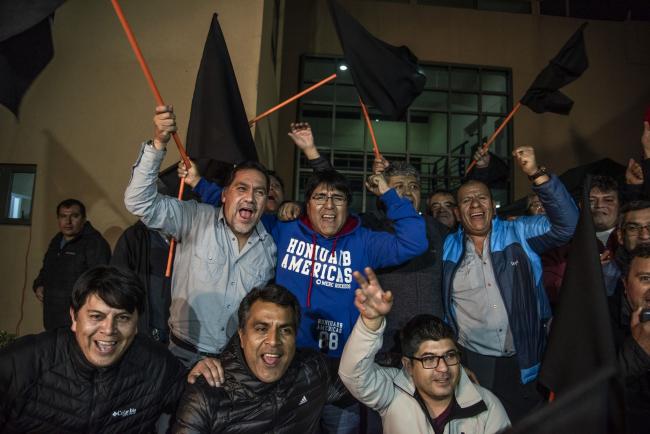(Bloomberg) -- Workers at top copper producer Codelco’s third-largest mine rejected the state company’s latest contract offer in a vote on Saturday, extending a strike.
A majority of Chuquicamata workers voted against Codelco’s collective proposal, the company said in a statement on Saturday. The Santiago-based miner has the option to present a new offer five days after the vote, effectively prolonging the stoppage -- now in its 11th day -- until June 28.
“The offer is the best effort that Codelco can make within a collective contract negotiation,” the company said in a statement. According to Chilean labor rules, Chuquicamata workers can individually go back to work on June 29, automatically accepting a previous offer made by Codelco earlier in the negotiation process, it said.
The supply disruption at Chuquicamata has helped lift the outlook for prices of the industrial metal at a time when supply is already tight and inventories in China are declining. Copper futures in New York climbed on Thursday to the highest in almost a month as the labor strife dragged on.
On Monday, workers blocked an access road that leads to mines in Codelco’s northern division and Freeport McMoRan Inc.’s El Abra for three-and-a-half hours. Protesters had planned the blockade to create a traffic jam that will delay workers from starting their morning shift at the mines, Liliana Ugarte, the president of Chuquicamata Union No. 2, said in a telephone interview.
A total of 55% of workers from Chuquicamata unions 1, 2 and 3 rejected Codelco’s offer in a formal vote on Saturday in the northern city of Calama, the groups said in a statement.
“Workers once again have rejected the company’s offer, so we need to keep fighting,” Cecilia Gonzalez, president of Chuquicamata Union No. 1, said by phone. “Workers are angry with the company’s management, so union leaders need to listen to their demands.”
Codelco had sweetened its offer for a labor contract ahead of the vote, and it included a one-time payment of 14.1 million Chilean pesos ($20,600) and lifelong health-care cost coverage for the 1,700 workers who will leave the mine as it transitions to underground operations this year and next.
Workers who individually decide to abandon the strike from June 29 will be accepting an earlier offer that includes a one-time payment of 9.8 million pesos, a 1.2% wage increase and less generous healthcare and retirement benefits.
Chuquicamata was operating at 50% to 60% capacity during the first days of the strike, the company had said. The mine produced 321,000 tons of copper in 2018 and output was expected to remain flat this year. The effects of the stoppage could have a broader impact because the project’s smelter and refinery process ore from all of the miner’s northern division, which accounted for half of its 1.68 million tons of output last year.
